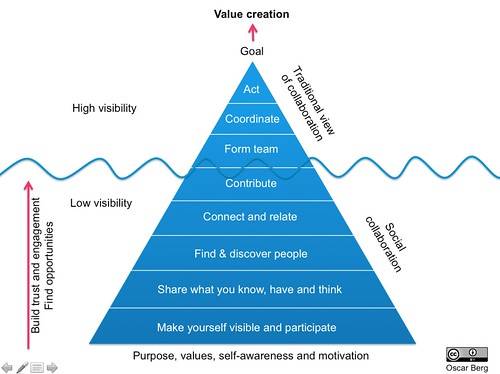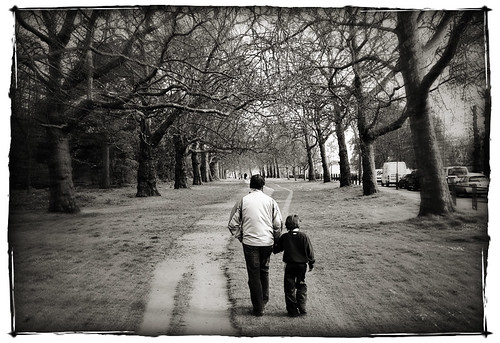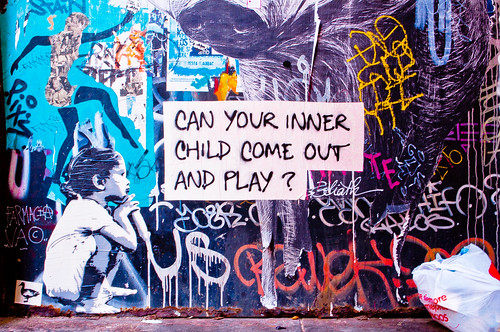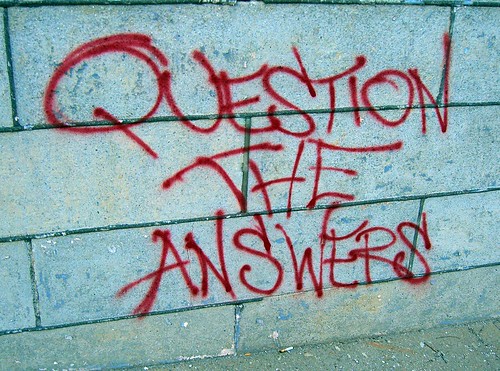 by Brenderous
by BrenderousThey engaged, they listened and they collaborated. Red Deer's and central Alberta's first edcamp unconference is on the books... what a fantastic day it was.
I really appreciate the reflective post, "If You Build It, They Will Camp," by @robertsdrb and especially this comment...
Every session I went to gave me something which either changed, deepened, challenged or furthered my thinking. And there were many other sessions that I didn't get a chance to go to but wish I would have had the time for as well.There's not much I could add to Diane's excellent recap and reflection of #redcamp13, except to say that I completely agree with this statement. As one of the other organizers of the event, and a host representing Glendale Sciences and Technology School where #redcamp13 was held, I felt responsible for keeping the flow going, and as a result didn't get to sit in on as many sessions as I would have hoped. That's OK though, because stepping back a bit gave me a unique perspective. From the sidelines I was able to make a few observations, some new friends and I had time to think about what we could add to #redcamp14...
- People. One of my hallway conversations with a school board trustee in attendance (thanks so much for that Cathy:) highlighted the wonderfully diverse nature of our unconference participants. Registered participants included...
School Administrators= 23
Senior Administrators= 2
Local Red Deer Teachers= 41
Out of Town Teachers= 33
External Agencies Supporting Schools= 6
Educational Assistants= 1
University Students/Recent Grads= 12
School Board Officials= 4
University Professors= 2
Seventh Grade Glendale Students= 3
Politicians= 1
Parents= 2
Cathy and I agreed that there are many stakeholders in providing high quality education, and many were represented at #redcamp13, but we could get more. Capturing the diversity in their perspectives is an important goal of the edcamp process.
- Kids. We had three (committed seventh grade students offered a session off the cuff explaining their edible landscaping project, and how they convinced the City of Red Deer to join them in creating a beautiful community resource on our shared property; an edible garden plan for everyone to enjoy and benefit from...) but more would be better. I had another conversation with a group of redcamp champs discussing the tremendous value of capturing student voice in an edcamp context. We were thinking out loud how great it would be to provide opportunities for students to share their thoughts about what can and perhaps should be done to continue supporting improved teaching and learning. We thought a TED style format would fit very nicely where kids briefly present their position, idea, dream, challenge etc. and then host a dialog around their topic of focus. This came to me during the session I presented addressing authentic and creative learning tasks, and we watched this...
- Collaborative Projects. The image at the top of this post made me think about this very cool #redcamp13 session... I'm wondering why a collaborative, one day art, writing, drama or blog project couldn't materialize as a feature outcome of #redcamp14.
- Topics. We had a rich and practical list of session topics; all proposed and presented by redcamp13 delegates. Presenters included politicians, teachers, administrators, senior administrators, pre-service teachers, recent education graduates, university professors, external agency representatives and even middle school students... it was an awesome range of choices, and one day just didn't seem like enough to fully address them, but maybe that's what's supposed to happen at edcamps. Perhaps some of these conversations will continue to evolve at the next edcamp offered in another town or city. At any rate, the more choice there is in session topics, the higher the chance we can create engagement and value in our conversations.

One thing I know for sure is that the people who made up #redcamp13 were already attuned to the social side of collaborative efforts.
They were motivated to make themselves visible and to participate. They
shared what they knew, tools they had and thoughts they pondered. They
showed up at #redcamp13 on a beautiful sunny Saturday morning in May
when they could have been doing other things; I think because they saw
the value in finding each other. They readily connected and related
personally and professionally with each other. They contributed.
Perhaps all of this is why the forming, storming, norming and reforming they did above the social collaboration wave went so smoothly.
Perhaps all of this is why the forming, storming, norming and reforming they did above the social collaboration wave went so smoothly.
I am very much looking forward to #redcamp14!

![Collaborate [11/52] by Brenderous, on Flickr Collaborate [11/52] by Brenderous, on Flickr](http://farm7.static.flickr.com/6226/6278328485_22a07a4803.jpg)







